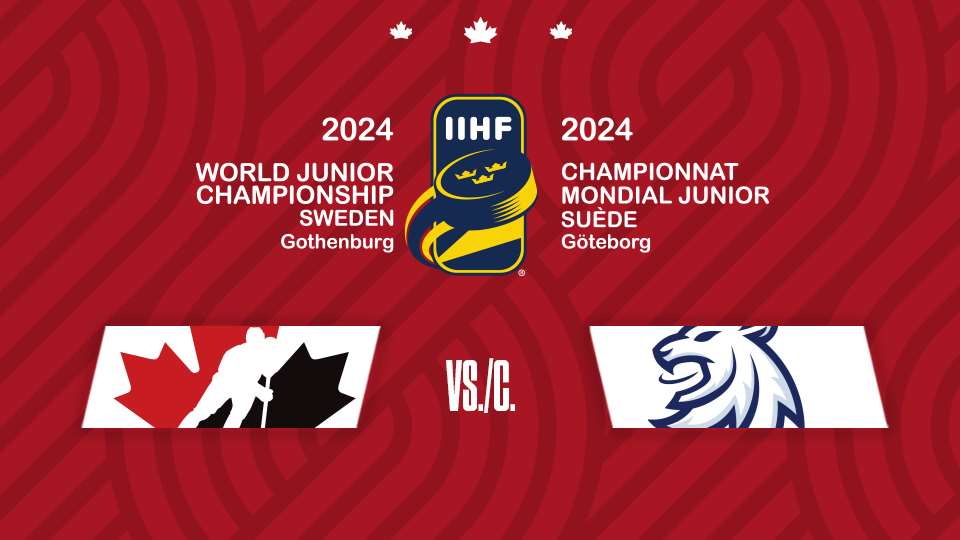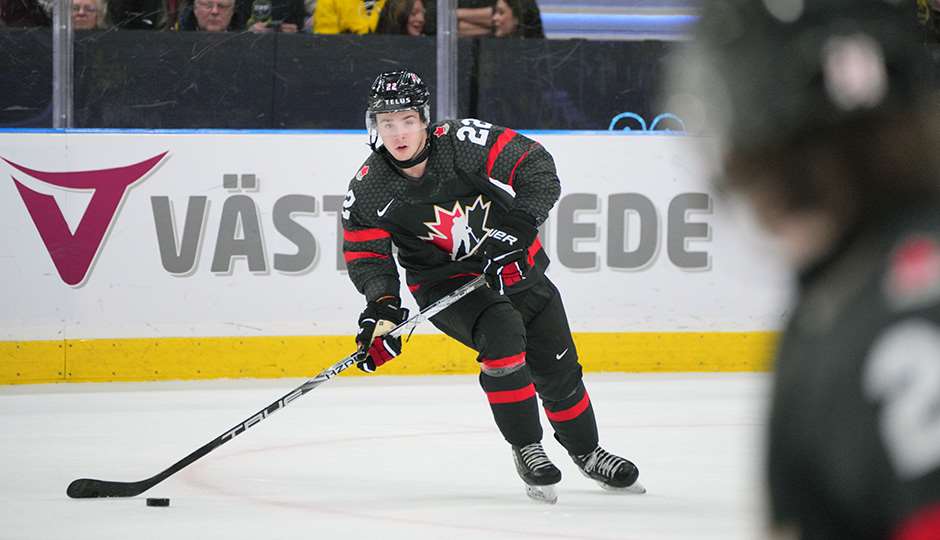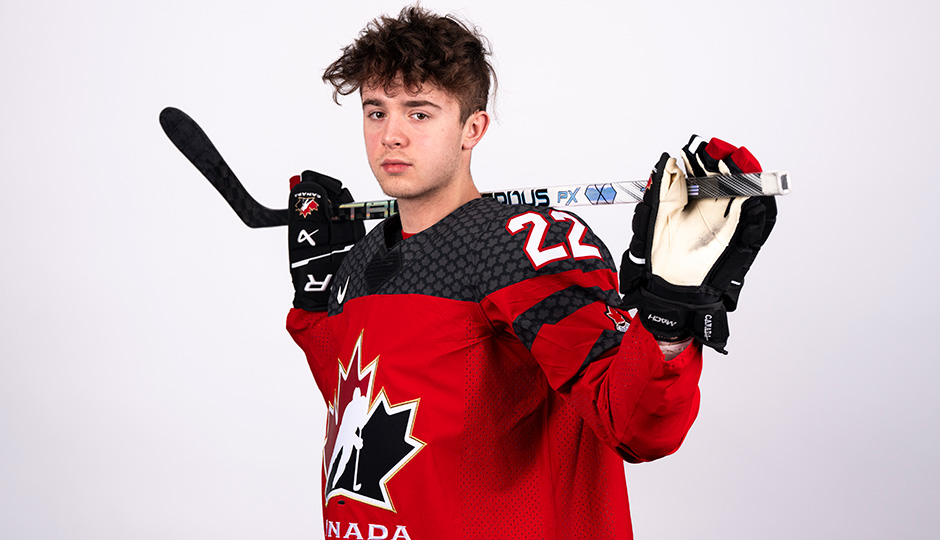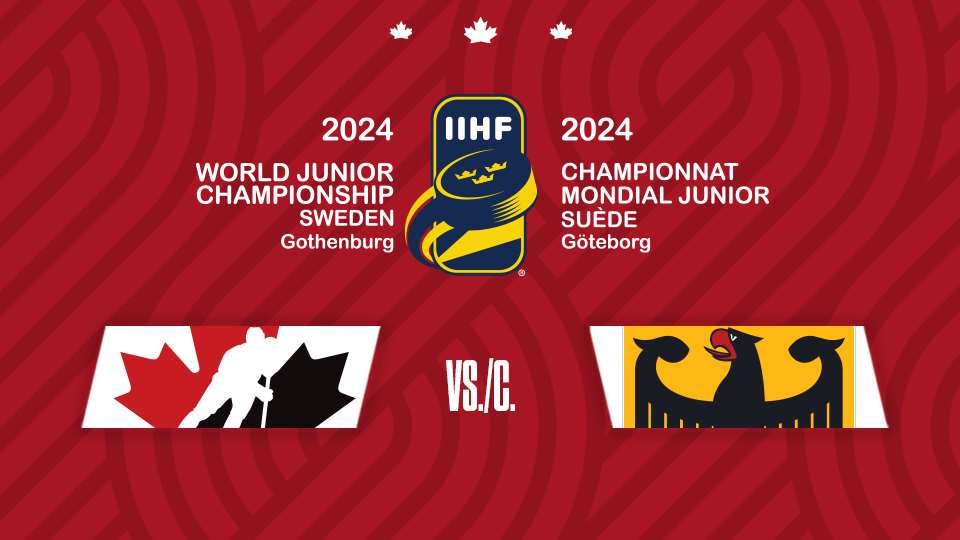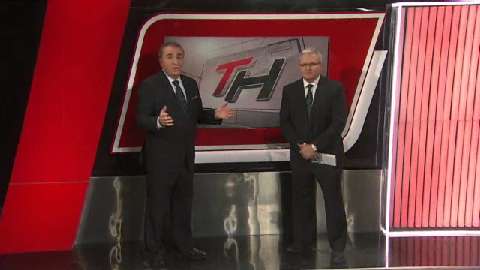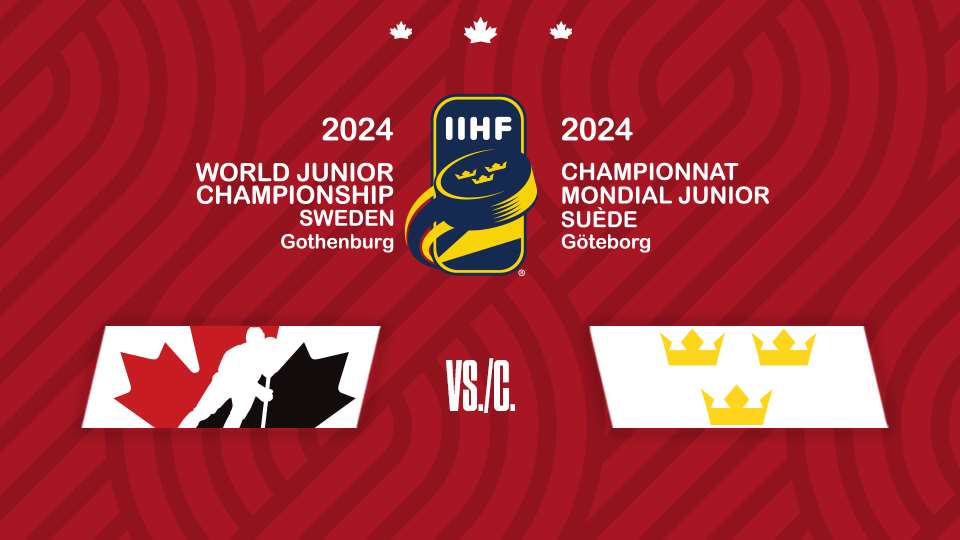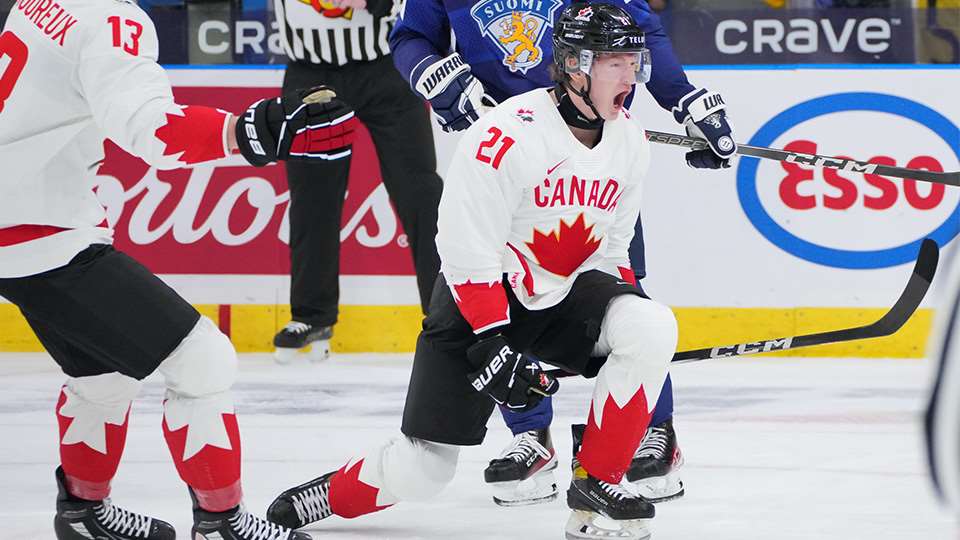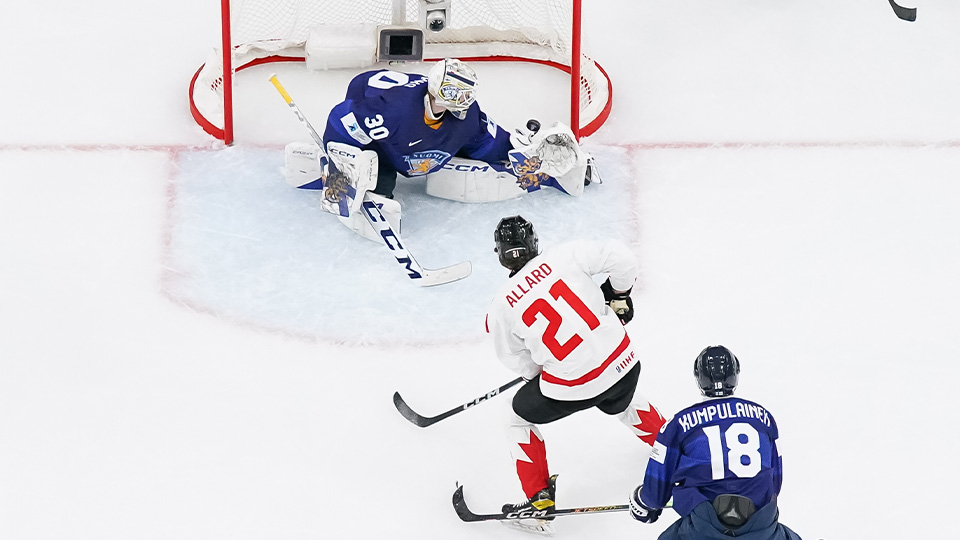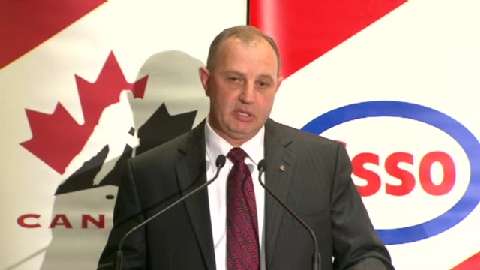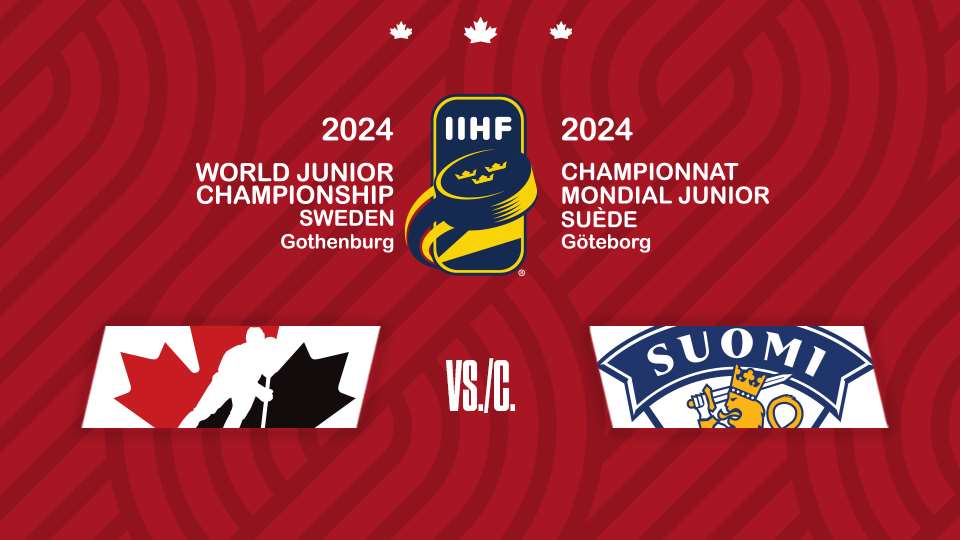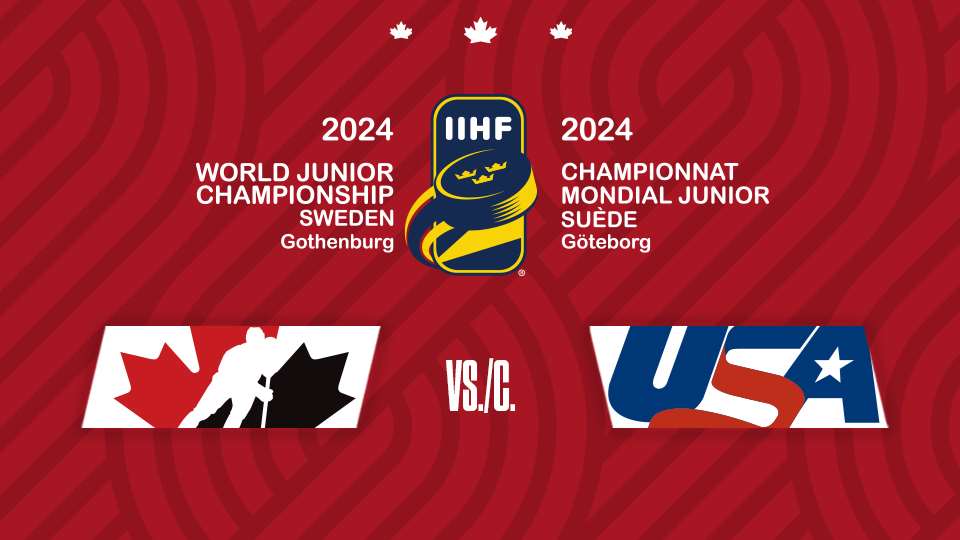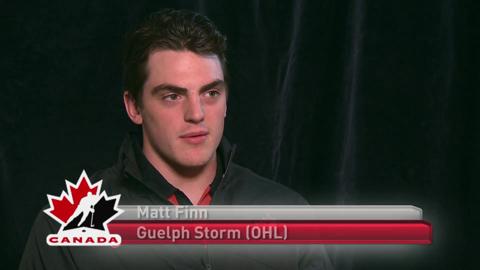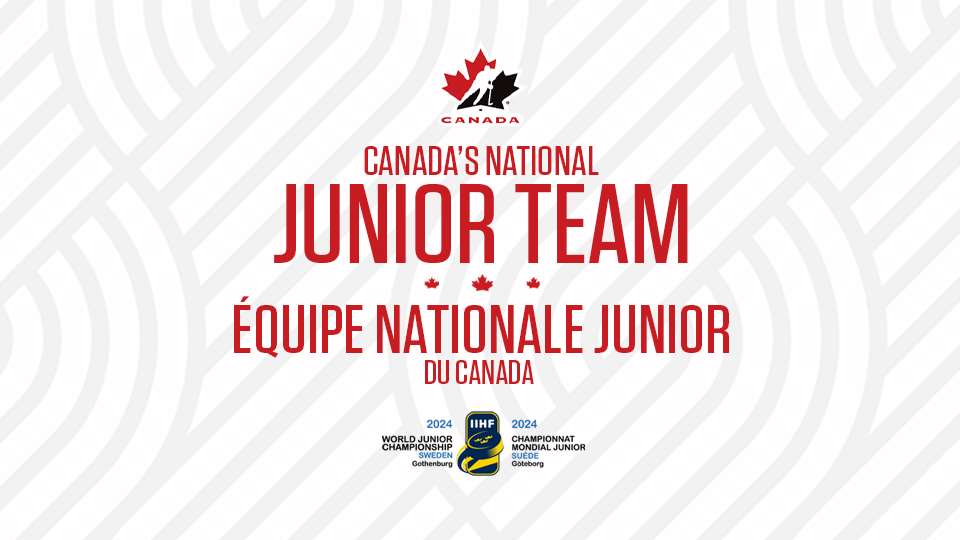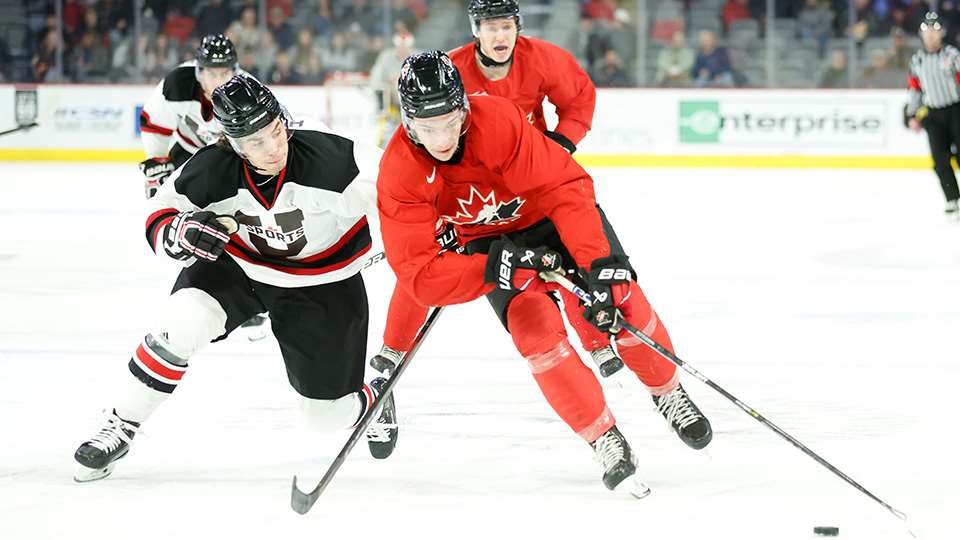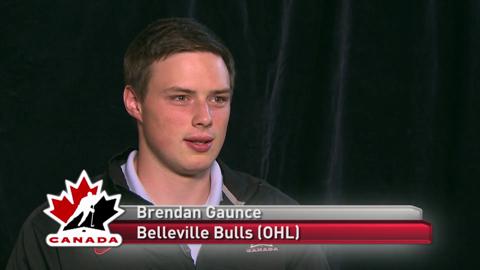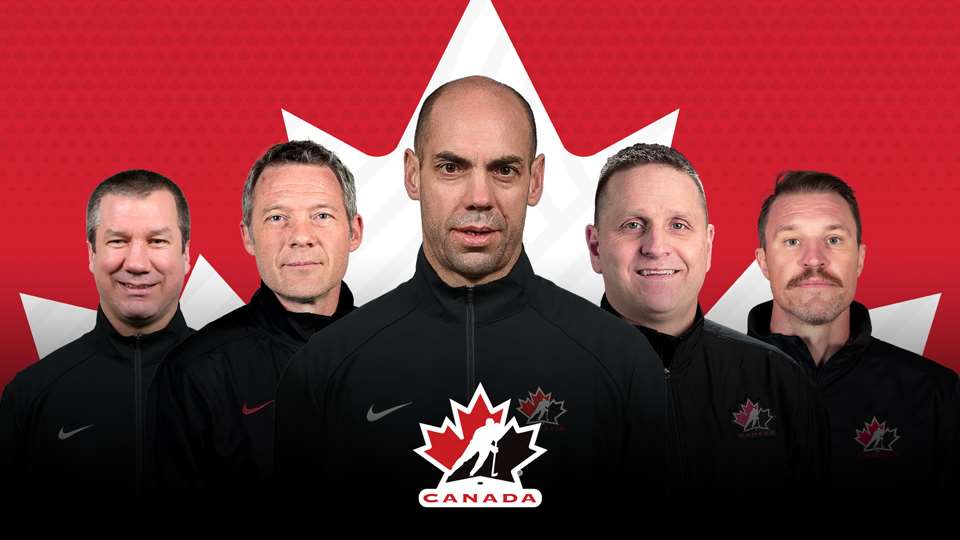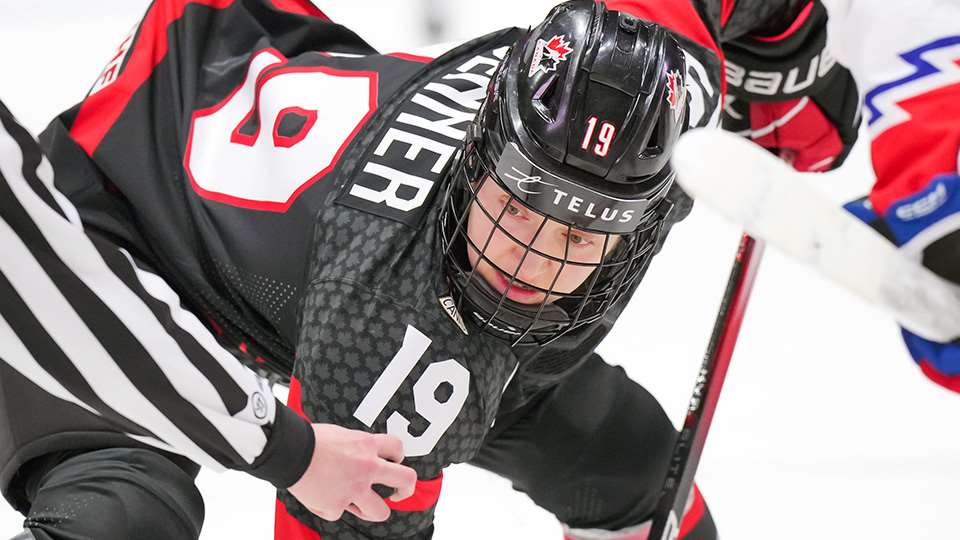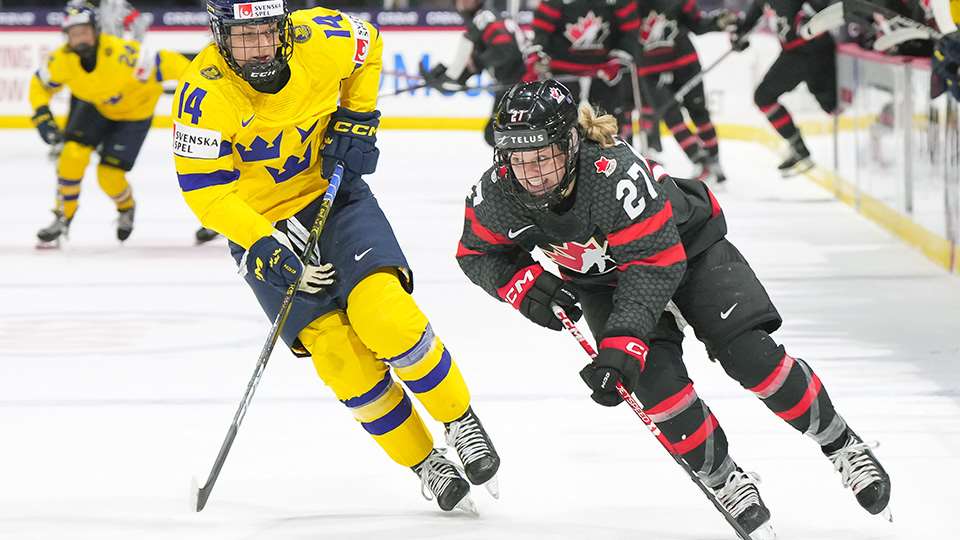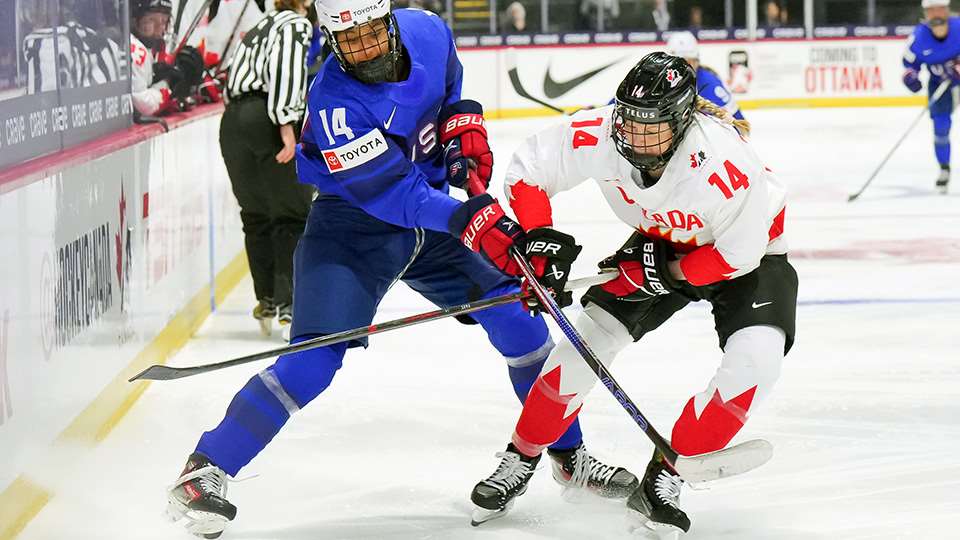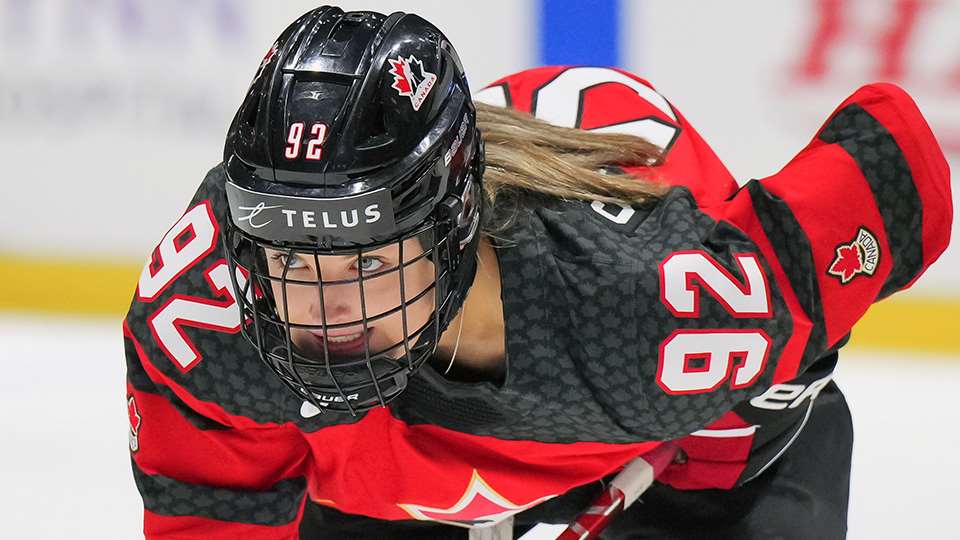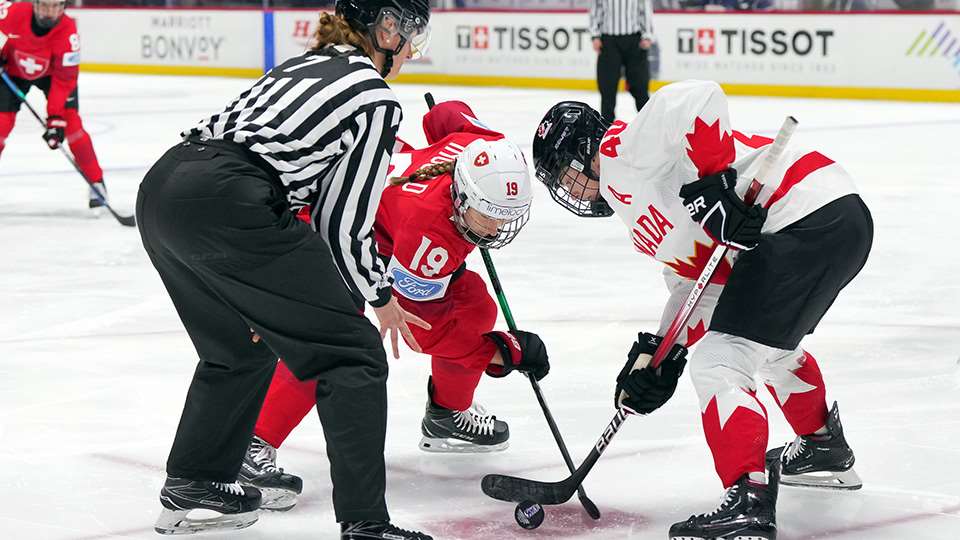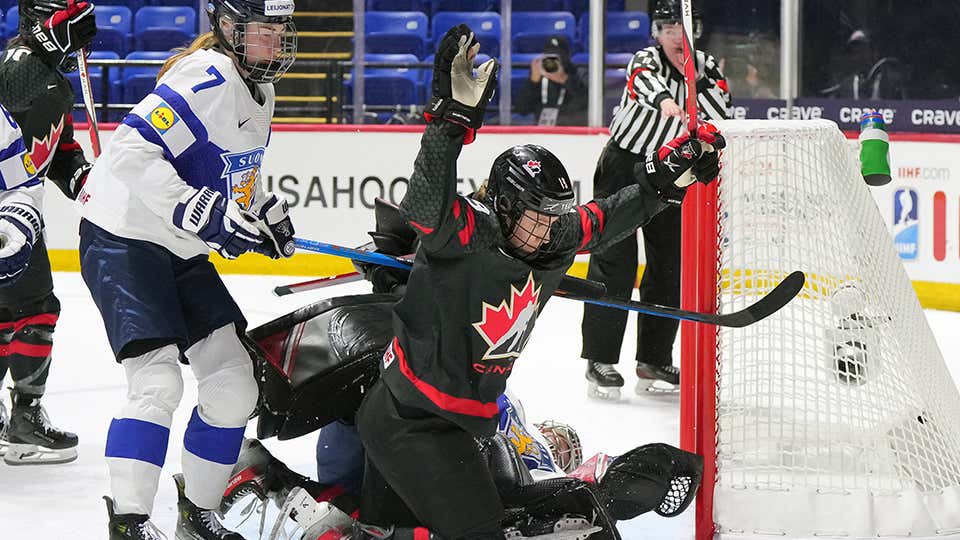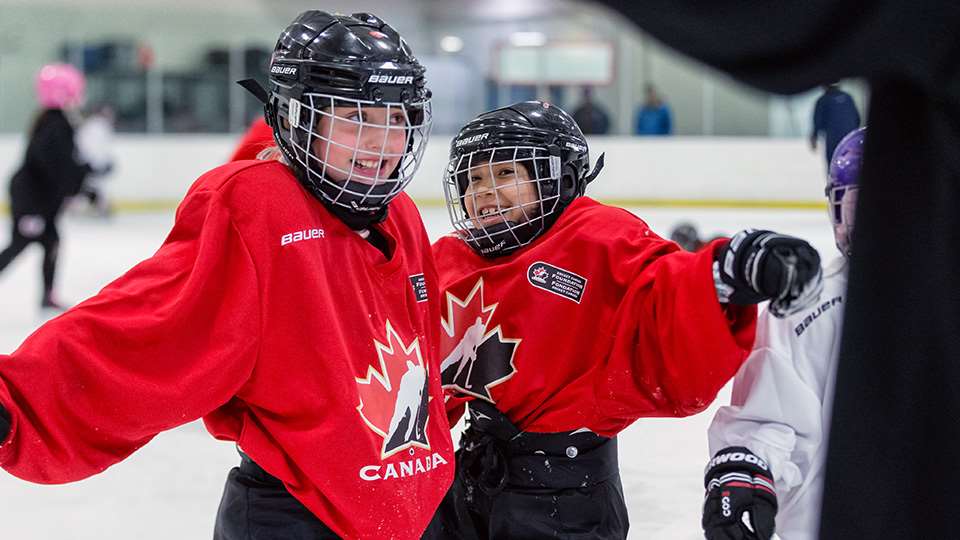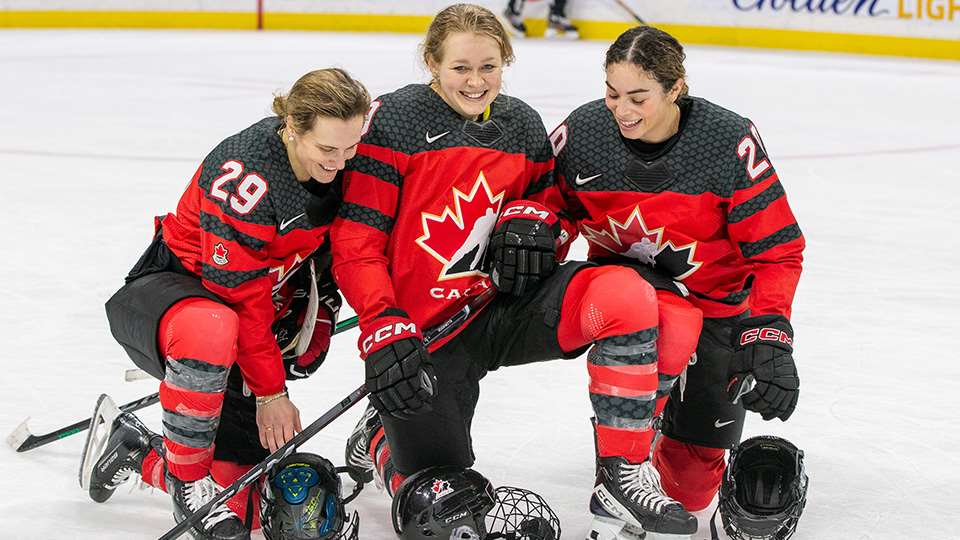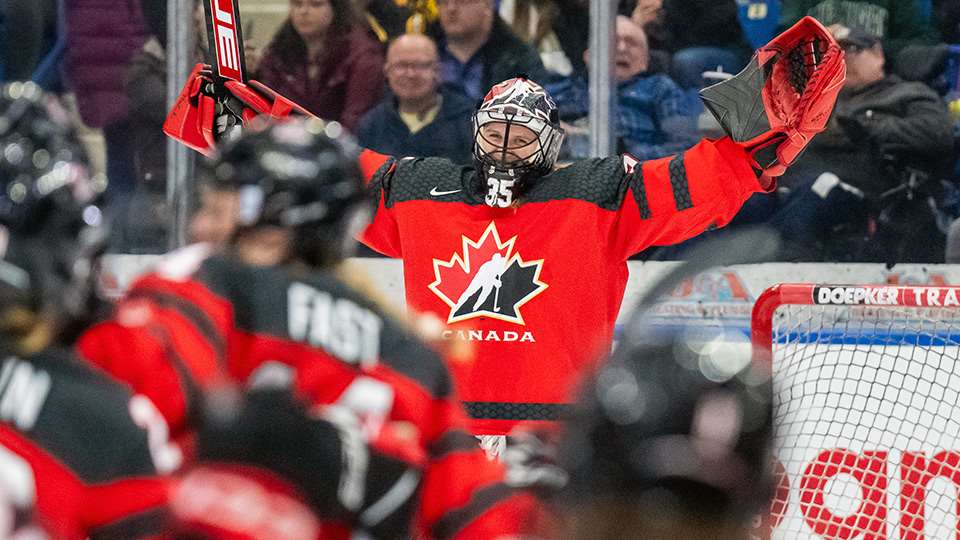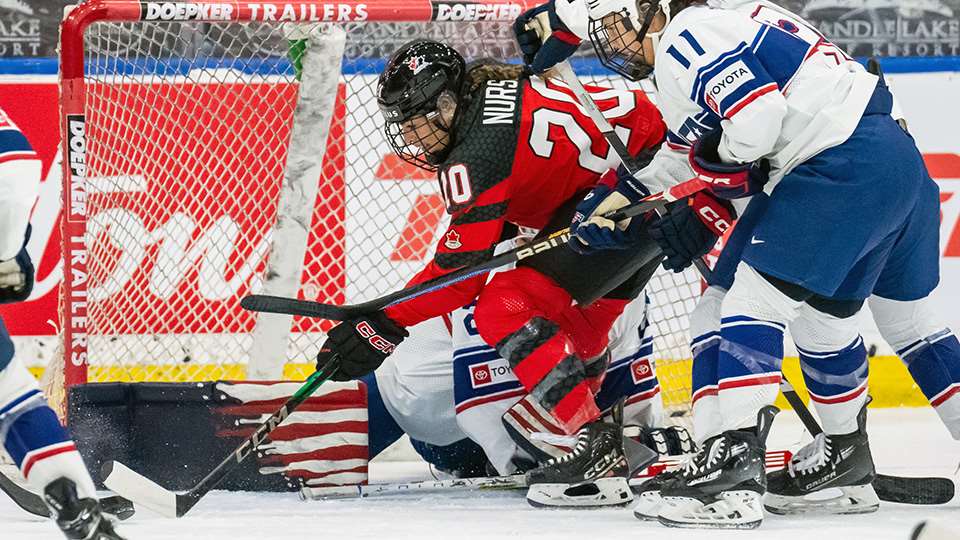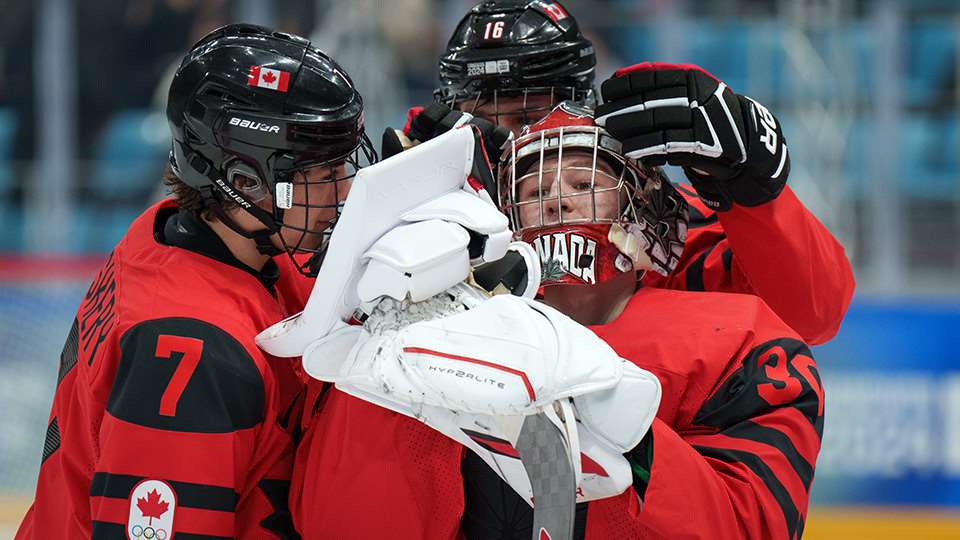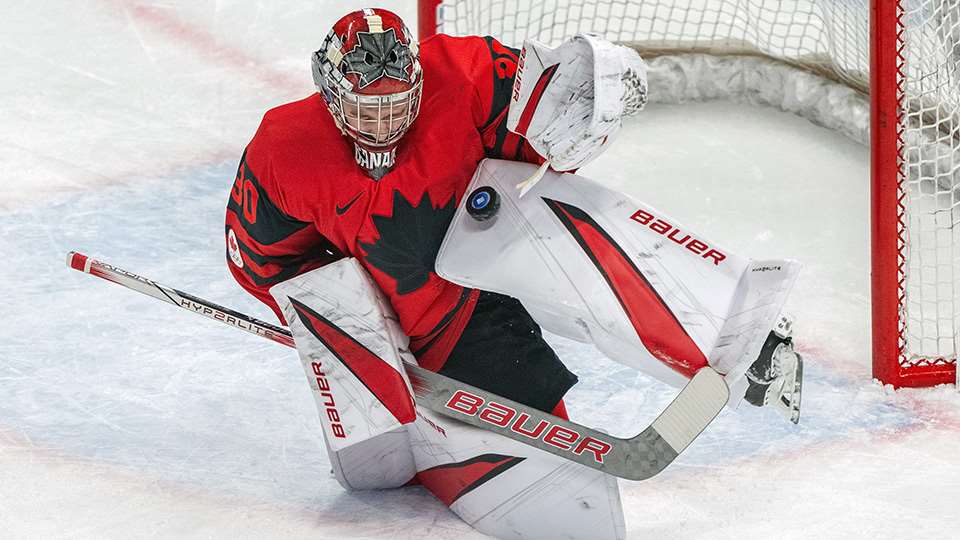With the Canada/Russia Super Series moving to Canada for the final four games, starting Tuesday night in
Winnipeg, hockeycanada.ca takes a look back at the IIHF World Junior Championships that took place in the
four Canadian host cities.
1999 – WINNIPEG, MB
GOLD – Russia; SILVER – Canada; BRONZE – Slovakia
The 1998 IIHF World Junior Championship in Finland was one of the darkest days in the history of Hockey
Canada’s Program of Excellence. Looking for an unprecedented sixth consecutive gold medal, the Canadians
dropped their first two games – to host Finland and Sweden – on their way to an eighth-place finish, capped
off by a shocking 6-3 loss to Kazakhstan.
Canada was back on home soil in Winnipeg one year later, looking for redemption. The 1999 World Juniors
got off to a rather inauspicious start for the tournament hosts, however, as they were held to a 0-0 draw by
Slovakia in their opener, the first scoreless tie in Canadian World Junior history.
A tight 6-4 win over Finland and a 2-0 victory over the Czechs left the Canadians knowing that a win over
the Americans on New Year’s Eve, 1998 would give them top spot in their pool, and a bye into the semi-final.
But someone forgot to tell the Americans the plan, and the USA – winless in the round robin entering the game
– routed the Canadians 5-1, sending the hosts to the quarterfinal.
Their quarterfinal opponents? Kazakhstan. Unlike one year earlier, however, the Canadians had something
more than seventh-place to play for, and quickly buried the Kazakhs, leading 3-0 after one period and 8-0
after two on their way to a 12-2 romp, and a semi-final berth. Simon Gagne led the way with four goals,
equaling Mario Lemieux’s Canadian World Junior record set 15 years earlier.
The Canadians used the momentum of their rout of Kazakhstan to roll over Sweden 6-1 in the semi-final,
scoring six unanswered goals after the Swedes had opened the scoring. The win set up a gold medal date with
the Russians, who had dropped just one game thus far in the tournament, to the Swedes on Boxing Day.
The Russians were dominant throughout the game, outshooting the Canadians 40-18, but Roberto Luongo kept
his country in it with standout goaltending, and Bryan Allen scored with just six minutes to go to force
overtime, exciting the 13,225 in attendance at Winnipeg Arena, along with the 1.8 millions viewers – the
largest TSN audience ever, at the time – at home.
But the celebration was short-lived, as Russia’s Artem Chubarov scored the overtime winner at 5:13 of the
extra period, giving the Russians their first goal medal in seven years, and sending Canada home without a
gold medal for the second consecutive year, the first time since 1986-1987 that Canada had gone back-to-back
IIHF World Junior Championships without taking home the top prize.
Luongo was named the tournament’s Top Goaltender, and was joined on the Tournament All-Star Team by
defenseman Brian Campbell and forward Daniel Tkaczuk.
1991 – SASKATOON, SK
GOLD – Canada; SILVER – Soviet Union; BRONZE – Czechoslovakia
The Canadians had been the class of the 1990 IIHF World Junior Championship in Finland, taking home the
gold medal for the second time in three years, finishing ahead of the Soviet Union on the strength of a 6-4
win in Helsinki on New Year’s Day.
One year later, Canada returned just six players from their 1990 championship team – Patrice Brisebois,
Mike Craig, Kris Draper, Eric Lindros, Kent Manderville and Steven Rice – while the Soviets returned seven
from their silver medal squad.
The round robin went according to plan for the Canadians – almost. A 4-4 tie with the Americans on
December 27th left the tournament hosts a point back of the Soviets, and a Soviet win over Finland on January
3rd would give them the gold and make the next day’s final round robin game one for bronze for the Canadians,
instead of the gold they wanted.
But the Finns would do Canada a monumental favour, as Jarkko Varvio scored with just 15 seconds remaining
to pull out a 5-5 tie with the Soviets, leaving Canada and the Soviet Union tied atop the standings, and
making their January 4th showdown one for gold.
The game was another classic Canada-Soviet Union match-up, as the Canadians jumped out to a 2-0 first
period lead on goals by Pierre Sevigny and Rice, only to see the Soviets claw their way back and pull even on
a Sandis Ozolinsh goal 3:50 into the final period.
Despite being outshot 17-3 in the final 20 minutes, it only took one for Canada to leave Saskatoon with
gold, and that one came from a most unlikely source.
John Slaney, who had not scored in the tournament, got a seeing-eye point shot through traffic and past
Soviet goaltender Sergei Sviagin with just 5:13 to go, giving Canada a 3-2 lead that it would not relinquish.
Slaney actually got so excited after his game-winner that he sprained his ankle in the celebration, and
watched the final five minutes from the Canadian bench.
Trevor Kidd and the Canadian defense held the Russians at bay for the final five minutes, giving Canada
its second consecutive gold medal, and fifth overall, at the IIHF World Junior Championship.
Lindros earned the tournament’s Top Forward award from the IIHF Directorate, and was joined by Craig on
the Tournament All-Star Team.
1995 – RED DEER, AB
GOLD – Canada; SILVER – Russia; BRONZE – Sweden
The NHL’s loss was Red Deer’s gain in 1995, as the NHL lockout meant that all of Canada’s top Junior-aged
players would be in Alberta, and Canada would ice one of its best teams ever at the IIHF World Junior
Championship.
Players such as Ryan Smyth, Alexandre Daigle, Jason Allison, Todd Harvey and Jeff Friesen would all have
been NHLers during the 1994-95 season, but without a league to play in, they found themselves back in Junior,
and on Canada’s roster as it looked for a third consecutive gold medal.
Canada rolled in their first three games, outscoring the Ukraine, Germany and the USA 24-5 on their way to
three convincing wins, before getting a scare from the Czech Republic in game number four.
Trailing 5-4 with less than five minutes to go, the Canadians got goals from a pair of defensemen – Wade
Redden at 15:51 and Jamie Rivers at 17:36 – to take the lead, and Friesen wrapped up a tight 7-5 win with an
empty-net goal with 31 seconds to go and the Czechs on the powerplay.
A New Year’s Day win over Finland left the Canadians at 5-0 and started talk of a perfect 7-0 tournament,
something no Canadian team had ever done. But the Canadians still had two games to go, and they were against
two of the other top teams in the tournament – Russia and Sweden.
The game against the Russians proved to be yet another back-and-forth classic between the two countries,
adding another chapter to an already-passionate rivalry.
The Russians scored first, but Allison scored just 41 seconds later, and Eric Daze gave Canada a 2-1 lead
after 20 minutes. Daze’s second of the game pushed the lead to 3-1, but this time it was Russia’s turn to
comeback, scoring twice before the middle frame was halfway done to pull even at 3-3.
Rivers and Daze, with his hat trick marker, gave Canada a 5-3 lead heading to the final 20 minutes, where
the hosts would put away the game with a little bit of history.
Harvey got the Canadians started with a powerplay goal at 2:29 of the third period, followed by Jeff
O’Neill at 2:48 and Marty Murray at 3:07, both on the powerplay as well, setting a pair of Canadian World
Junior records – fastest two powerplay goals (19 seconds – twice) and fastest three powerplay goals (38
seconds). The Russians scored a pair to round out the scoring in an 8-5 Canadian win, setting up more history
against the Swedes.
Harvey, Allison and Denis Pederson scored in the opening 13 minutes of the game and Daze scored the
eventual game-winner eight seconds into the final period – a Canadian record for fastest goal from the start
of a period – as Canada held off a late Swedish charge for a 4-3, completing what was, at the time, the most
dominant run ever by a Canadian team at an IIHF World Junior Championship.
Bryan McCabe was named the tournament’s Top Defenseman, while Murray picked up the Top Forward award, as
he tied with Allison for the team, and tournament, lead in scoring with 15 points in seven games. The
Canadians took four of the six spots on the Tournament All-Star Team, sweeping with forward positions, with
Murray, Allison and Daze earning the spots, joined by McCabe on the blueline.
2006 – VANCOUVER, BC
GOLD – Canada; SILVER – Russia; BRONZE – Finland
Canada’s 2005 National Junior Team was arguably the greatest to ever take the ice at an IIHF World Junior
Championship, outscoring the opposition 41-7 on their way to a perfect 6-0 run through the tournament and
Canada’s first gold medal since 1997.
But with only one player returning the following year – defenseman Cam Barker – Canada entered the 2006
tournament in Vancouver behind Russia and the USA as far as gold medal favourites were concerned.
But Canada kicked off their tournament on Boxing Day with a convincing 5-1 win over Finland at a sold-out
Pacific Coliseum, holding the Finns to just 17 shots on goal, a sign of things to come.
A tight 4-3 win over Switzerland and a 4-0 shutout win over Norway set the Canadians up for a first-place
battle with the USA on New Year’s Eve, 2005, with the winner advancing straight to the semi-finals, avoiding
an extra game in the quarterfinals.
After Barker and Dustin Boyd gave the Canadians a 2-0 lead within the first seven minutes, it looked as if
the Canadians would cruise to their fourth straight win, and a semi-final berth. But the Americans had other
ideas, and goals from Chris Bourque and Peter Mueller had the USA even at 2-2 by the eight-minute mark of
period number two.
It was a goaltending battle between Canada’s Justin Pogge and the USA’s Corey Schneider the rest of the
way, with neither team able to find the back of the net.
With Canada ahead on goal differential entering the game, a tie game would mean the hosts would advance,
so Schneider was pulled in the dying minutes, despite the fact the game was still even at 2-2.
Captain Kyle Chipchura took advantage, finding the empty net with 33 seconds to go, clinching the victory,
and top spot in Pool A, for the Canadians.
In the semi-final, the second meeting between Canada and Finland at the tournament, Canada’s defense once
again shone, holding the Finns to just 19 shots as Pogge registered his second shutout, tying the Canadian
record held by Mathieu Garon (1998), Roberto Luongo (1999) and Pascal Leclaire (2002), in a 4-0 win.
The win set up yet another Canada-Russia gold medal game at the IIHF World Junior Championship, the fourth
time in five years the two countries would meet for the top prize.
Led by superstar Evgeni Malkin, the Russians had run through the competition leading up to the gold medal
game, outscoring the opposition 27-7, including a convincing 5-1 win over the Americans in their
semi-final.
But none of that mattered to Pogge and the rest of the Canadian defense, who shut down Malkin and the rest
of the high-powered Russian offense on their way to a surprisingly convincing 5-0 win, led by a pair of
second period powerplay goals from Michael Blunden.
Pogge turned aside 35 shots in his most impressive performance of the tournament, setting an all-time
Canadian, and IIHF World Junior Championship, record with his third shutout.
Marc Staal received the Top Defenseman award from the IIHF Directorate, while Steve Downie and Luc Boudon
earned spots on the Tournament All-Star Team for their roles in helping Canada to a second consecutive gold
medal.






















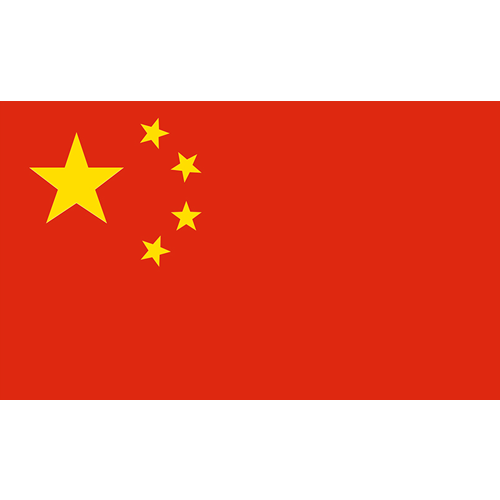


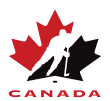
_20231201215358_0.png?w=30&q=60)
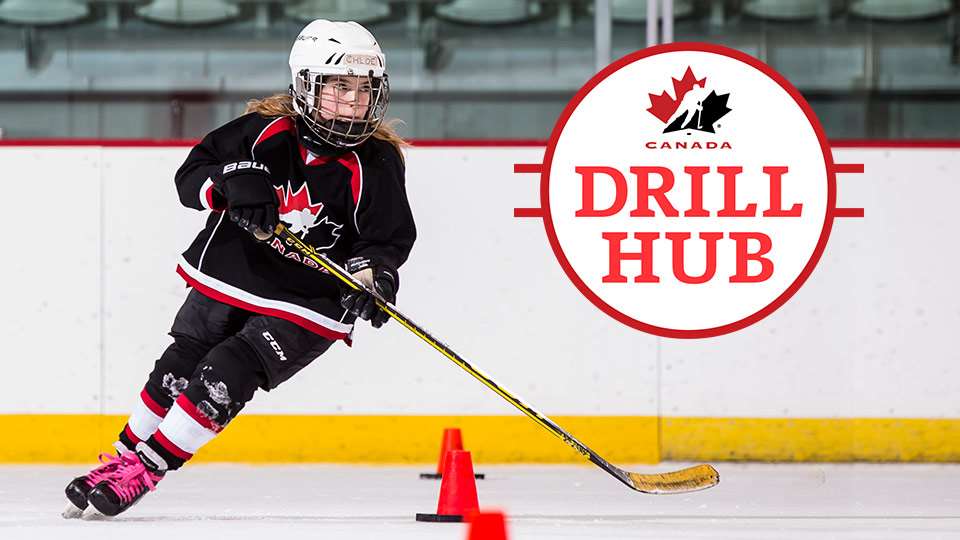
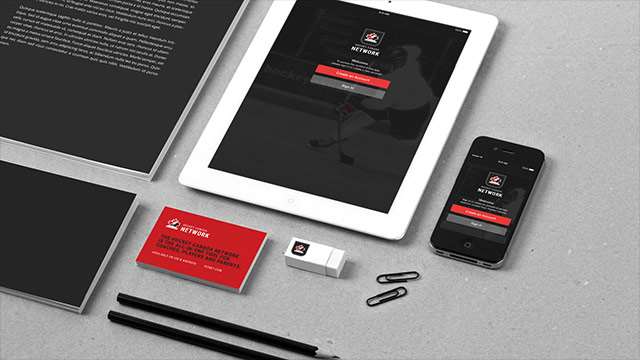
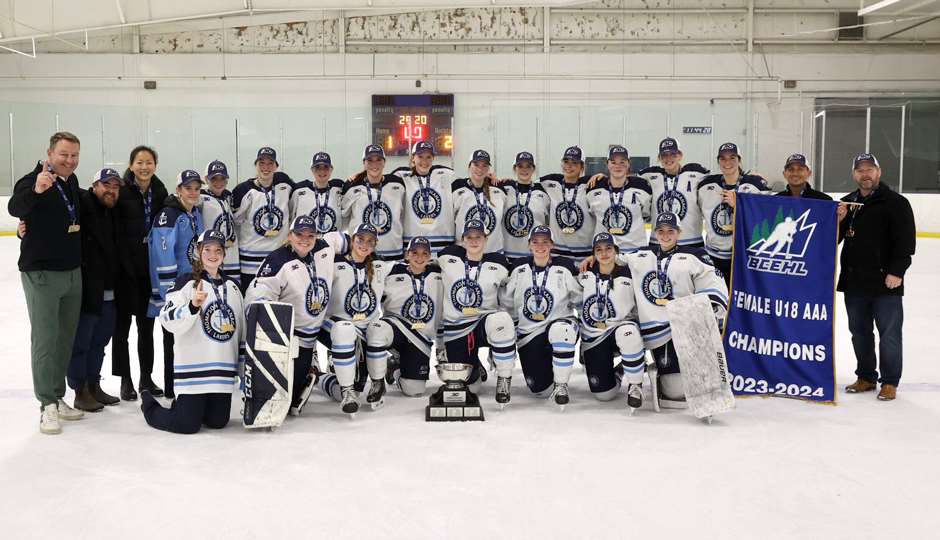
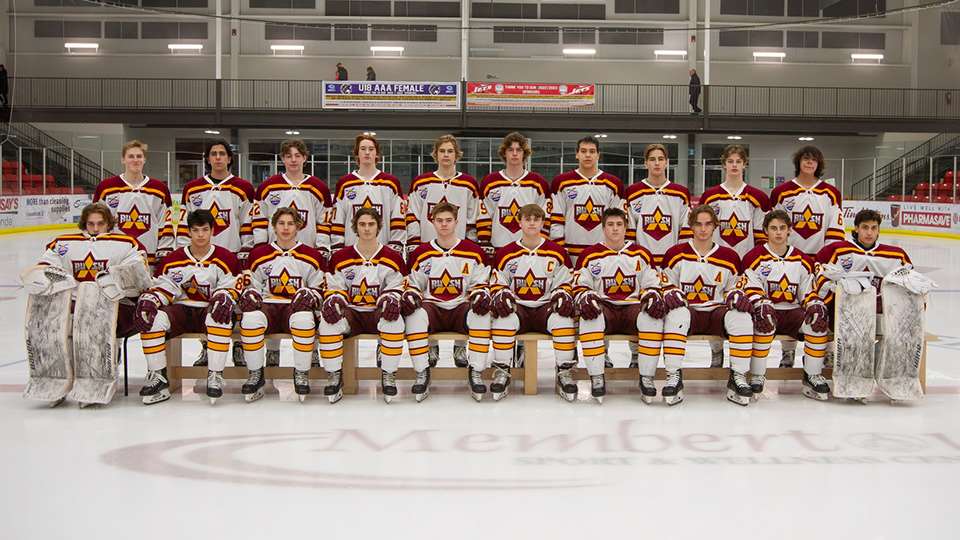
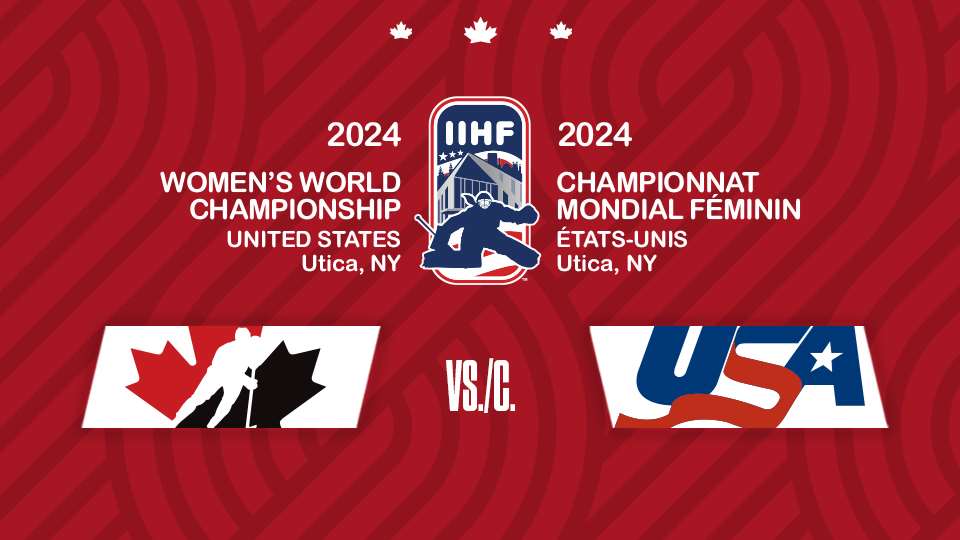
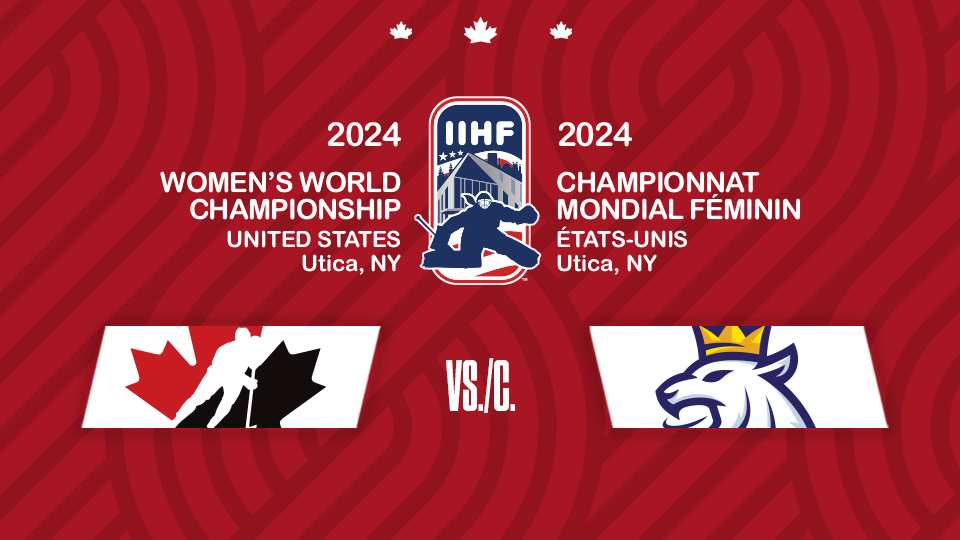
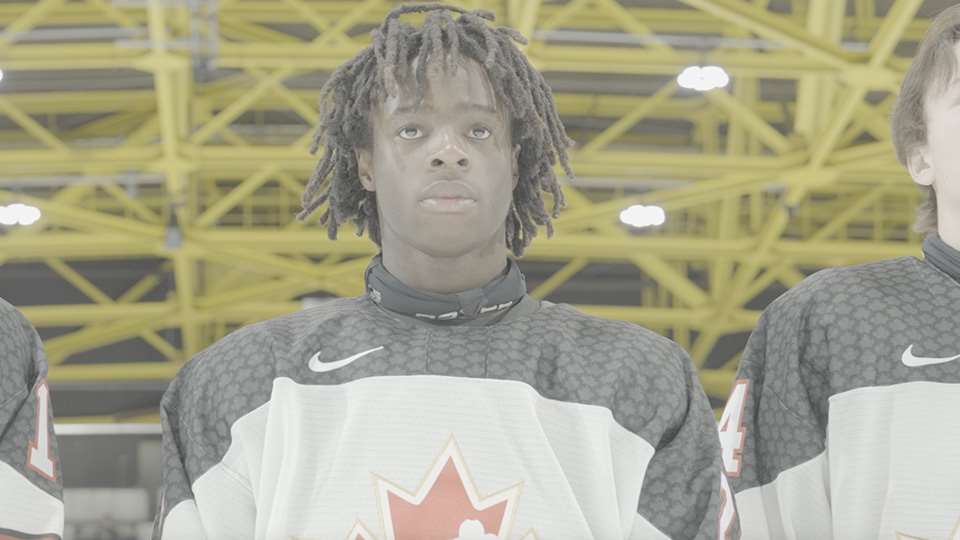
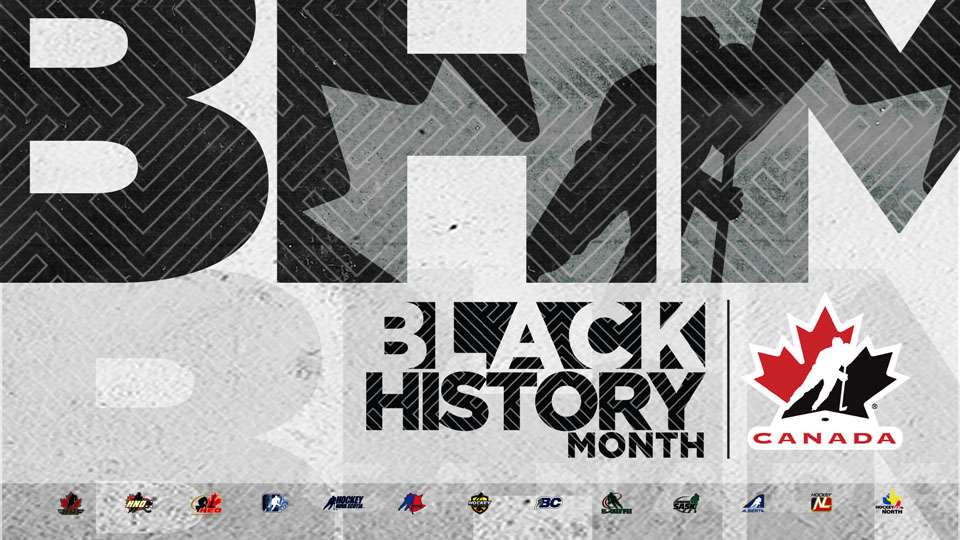
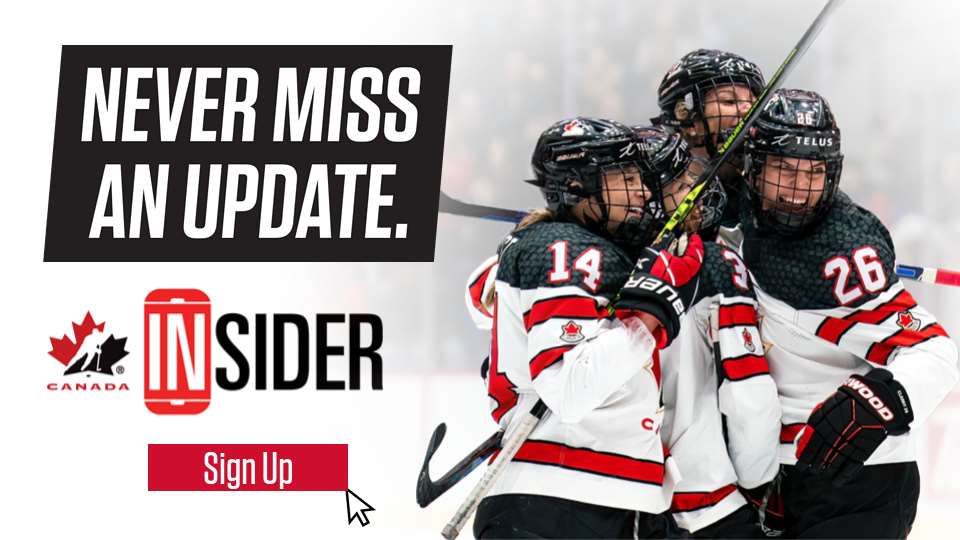
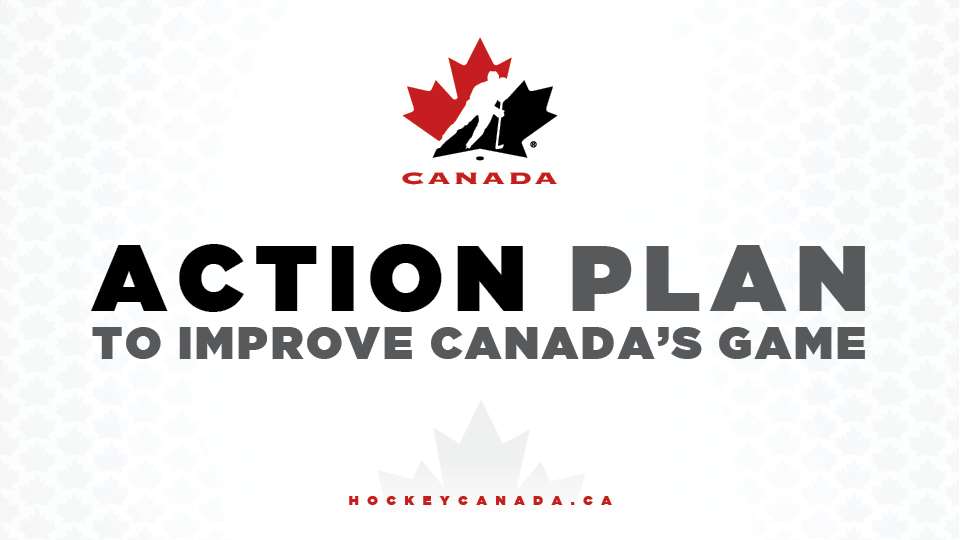
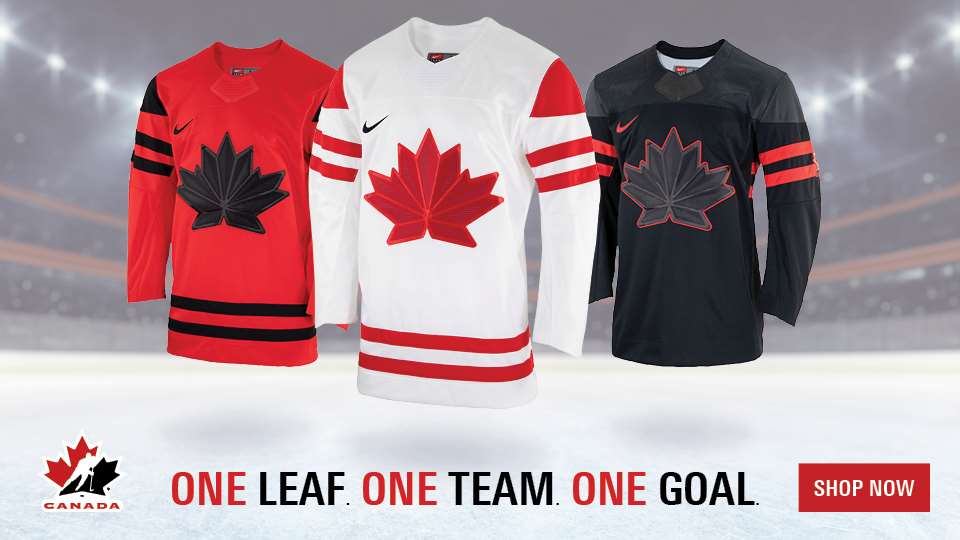


_20231201215358_0.png?w=20&q=60)


